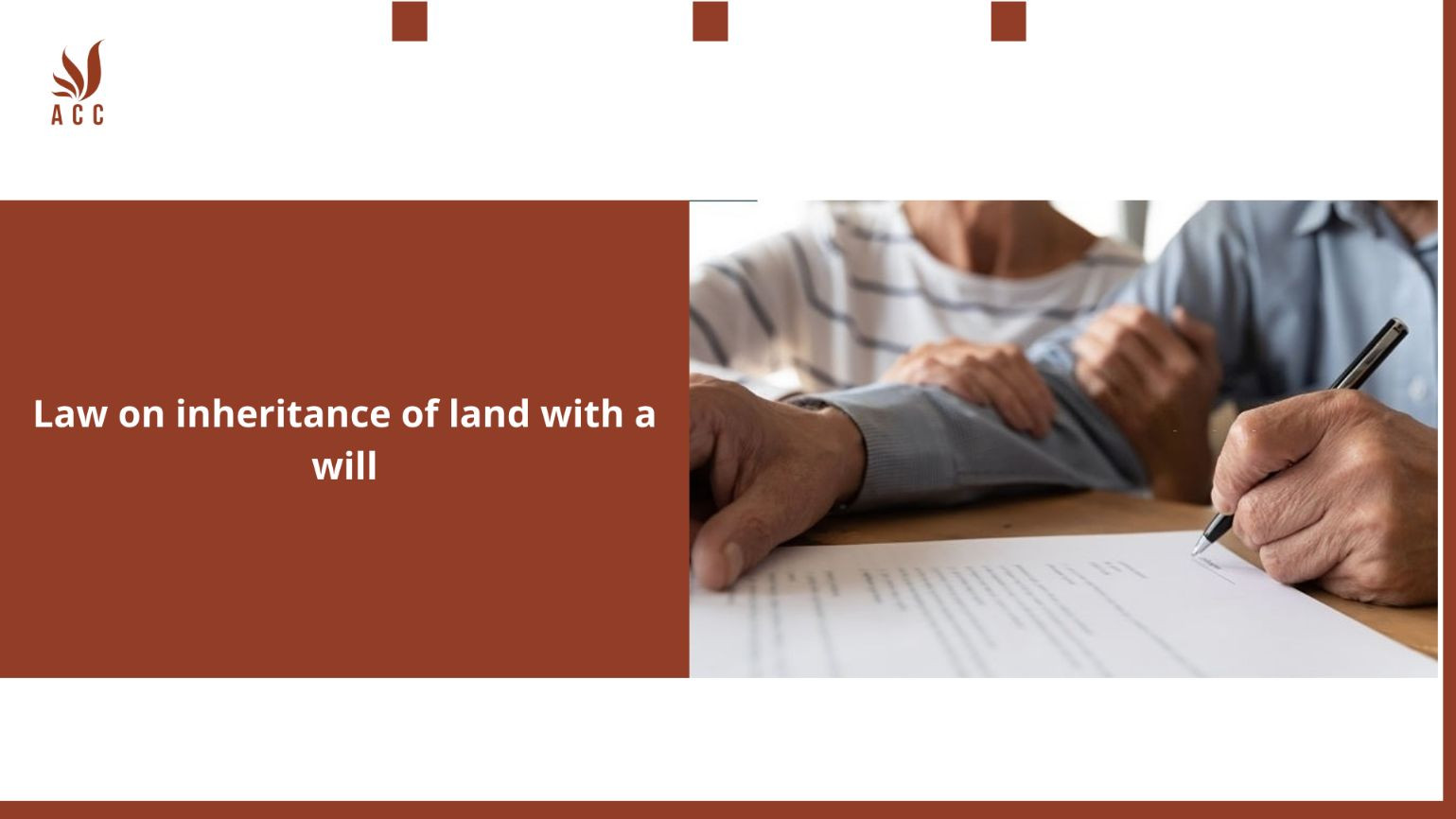The law on the inheritance of land with a will governs how real property or land is passed on to designated beneficiaries according to the wishes of the deceased person (the testator) as outlined in their will. While specific laws can vary by jurisdiction, there are common principles and legal considerations that generally apply to the inheritance of land with a will. Here are some key points to understand:

1. Will Formalities:
The law typically requires that a will be executed in accordance with specific formalities to be valid. These formalities often include the need for a written and signed document, usually witnessed by a prescribed number of witnesses. The specifics can vary by jurisdiction.
2. Legal Description:
A valid will must contain a clear and accurate legal description of the land being bequeathed. This description should provide sufficient detail to identify the property unambiguously, including boundaries, lot numbers, and other pertinent information.
3. Specific Bequests:
The testator can specify in the will who will inherit the land. This can be a particular individual, multiple individuals, or an organization. The will should clearly state the beneficiaries and their respective shares of the land.
4. Executor or Personal Representative:
The will should name an executor or personal representative who will be responsible for carrying out the terms of the will, including the transfer of the land to the designated beneficiaries. The executor's role often includes managing the estate's affairs, settling debts, and ensuring that the land is transferred to the beneficiaries as specified.
5. Payment of Debts and Expenses:
The law may require that the will include provisions for settling the deceased person's debts, including any mortgages or liens on the land, as well as funeral expenses and the costs associated with the administration of the estate.
6. Residuary Clause:
If the will involves assets other than the land, it may include a residuary clause that specifies how the remaining assets (after specific bequests and expenses) should be distributed among beneficiaries.
7. Contingencies:
The will can address contingencies, such as what should happen if the designated beneficiary predeceases the testator or if the land is sold before the testator's passing.
8. Q&A
Q1. What is the law on the inheritance of land with a will?
The law on the inheritance of land with a will can vary depending on the jurisdiction. Generally, the law recognizes the testator's right to dispose of their property, including land, through a validly executed will. The will should comply with the legal requirements of the jurisdiction, such as being in writing, signed by the testator, and witnessed by the required number of witnesses.
Q2. Can a testator freely decide who inherits the land in their will?
In most cases, a testator has the freedom to decide who inherits their land in their will, as long as the will is valid and complies with the legal requirements. However, some jurisdictions have laws that protect certain family members, such as spouses or children, by providing them with a minimum share of the estate, even if they are not named as beneficiaries in the will. These laws are known as forced heirship or statutory entitlement laws.
Q3. Can the inheritance of land through a will be contested?
Yes, the inheritance of land through a will can be contested in court. Interested parties, such as potential heirs or beneficiaries who believe they were unfairly excluded or who have concerns about the validity of the will, can challenge its provisions. Common grounds for contesting a will include allegations of undue influence, lack of mental capacity, fraud, or improper execution. The court will review the evidence and make a determination based on the applicable laws and evidence presented.
Q4. Are there any taxes or fees associated with inheriting land through a will?
Inheritance taxes or fees may be applicable when inheriting land through a will, depending on the jurisdiction. These taxes or fees are typically imposed on the estate and its beneficiaries, and the rates and exemptions can vary. It is advisable to consult with a lawyer or tax professional to understand the specific tax implications related to inheriting land through a will in your jurisdiction.
Nội dung bài viết:






Bình luận